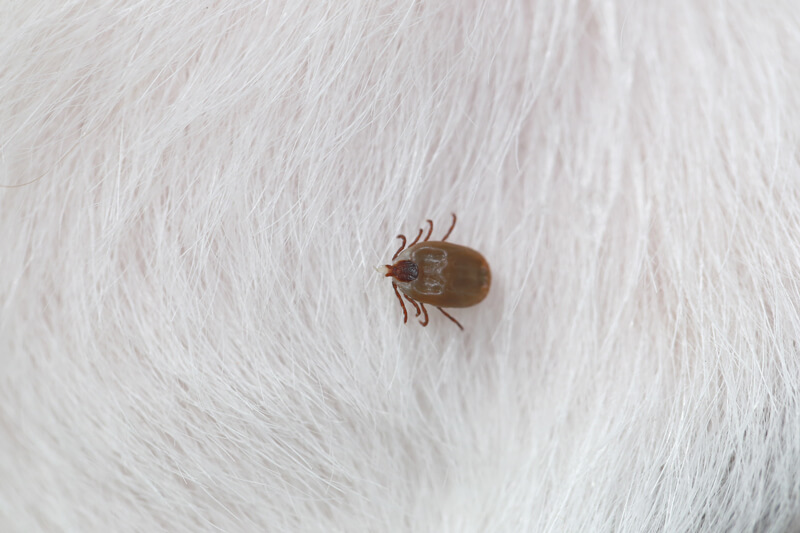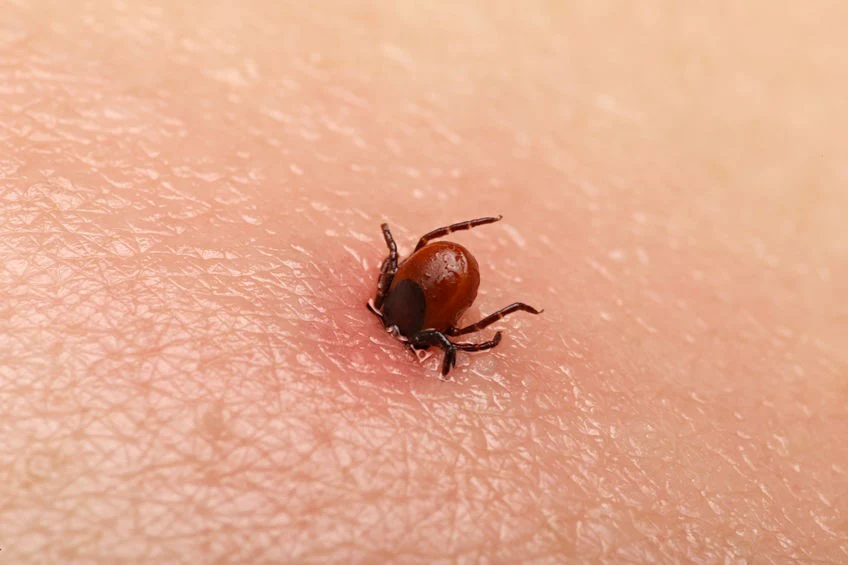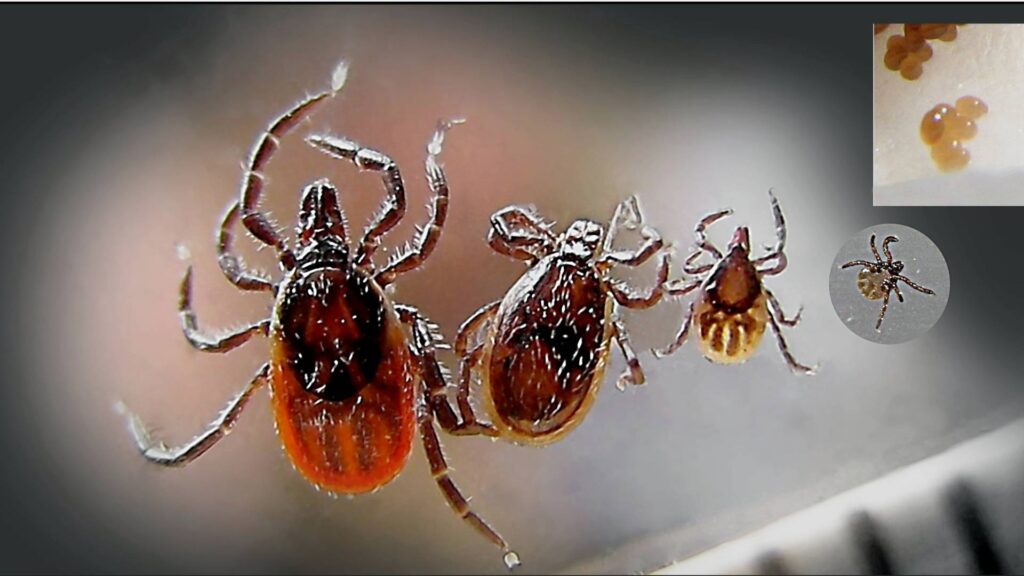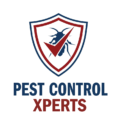Tick Removal and Control in Fort Pierce, Florida, Pest Control Xperts
Enjoying the outdoors is part of life on the Treasure Coast, but wandering into tall grass or even your own backyard can expose you and your pets to ticks. At Pest Control Xperts, we provide aggressive tick removal and yard control services for homeowners in Fort Pierce, Vero Beach, and the surrounding communities. Unlike colder climates where ticks disappear in winter, Florida’s warm weather allows tick populations to remain active year-round. These pests are not just a nuisance; they are vectors for serious illnesses. Whether you live near the Savannas Preserve State Park or in a residential neighborhood with heavy vegetation, your property may be at risk. We focus on protecting your family and pets by targeting ticks where they live and breed. Our process includes a detailed pest inspection of your yard’s “hot spots,” safe pest management practices, and effective barrier treatments. We prioritize clear communication and reliable scheduling, working with you to create a safer outdoor environment. If you are finding ticks on your dog or yourself after a day in the yard, we are ready to help you take back your lawn.
Tick Problems We Solve in Fort Pierce
Ticks are stealthy hunters that wait on the tips of grass blades for a host to brush past. In St. Lucie County, we frequently deal with the Brown Dog Tick, the American Dog Tick, and the Blacklegged Tick. These pests often hitch a ride into your yard on local wildlife like raccoons, opossums, or even stray cats. Once established in your lawn or shrubbery, they can quickly latch onto your pets and be brought inside your home. We solve problems ranging from a few ticks found on a pet to severe yard infestations where walking to the mailbox results in bites. Effective pest management requires treating the environment, not just the animal. Our infestation control strategies focus on the elimination of pests by targeting the shady, moist areas where ticks hide. We use professional pest tracking to identify the wildlife paths that are introducing ticks to your property. Through targeted insect control and habitat modification, we drastically reduce the population.
Common signs of a tick issue:
- Finding small, flat, or engorged ticks attached to your pet’s skin
- Red, raised bumps on your skin after being outdoors
- Pets constantly scratching or biting at their ears and paws
- Seeing ticks crawling on walls or curtains inside the home (common with Brown Dog Ticks)
- “Seed ticks” (tiny larval ticks) found in large numbers on clothing
- Ticks found in the bedding or sleeping areas of pets
- A sensation of something crawling on you after gardening or yard work
- Frequent sightings of wildlife (raccoons, deer) passing through your yard
- Unexplained lethargy or fever in pets (symptoms of tick-borne illness)

Types of Tick Issues We Handle
Yard and Perimeter Tick Control
The vast majority of tick infestations start in the yard. Ticks require high humidity to survive, so they congregate in tall grass, leaf litter, and beneath dense shrubs. They do not typically thrive in the middle of a manicured, sunny lawn. In Fort Pierce, properties backing up to preserves or wooded areas are at high risk. We create a defensive zone to stop them before they reach your patio.
What we look for during inspection:
- Tall grasses and overgrown vegetation along fence lines
- Leaf litter accumulation under trees and decks
- Shaded areas where soil stays moist
- Wildlife trails entering the property
How we approach treatment:
We implement pest barrier installation strategies by treating the “ecotone”—the transition area between the manicured lawn and the woods or landscaping. We focus our application on vegetation up to waist height, where ticks wait for hosts. We also treat shaded areas under decks and shrubs. This targeted approach reduces the population without covering your entire lawn in chemicals.
Brown Dog Tick Infestations Indoors
Unlike other species, the Brown Dog Tick is unique because it can complete its entire life cycle indoors. It thrives in the dry air of a home and often infests kennels, dog beds, and even climbs curtains and walls. This is a severe issue that standard cleaning cannot solve, as they hide in cracks and crevices just like bed bugs.
What we look for during inspection:
- Ticks crawling on walls or ceilings
- Activity around door frames and baseboards near pet areas
- Ticks hidden in the cracks of dog crates or furniture
- Clusters of tiny larvae in carpets
How we approach treatment:
Treatment for indoor ticks requires a comprehensive strategy similar to flea control. We treat baseboards, window casings, and areas where pets rest. We use products that include Insect Growth Regulators (IGRs) to stop the reproductive cycle. We also strongly recommend coordinating with your veterinarian to treat the pet simultaneously.
Wildlife Management for Tick Prevention
You cannot solve a tick problem if new ticks are being delivered daily by wild animals. Raccoons, opossums, and rodents are the primary “taxis” for ticks in Fort Pierce. If these animals are nesting under your shed or foraging in your trash, they are dropping tick eggs and adults into your yard.
What we look for during inspection:
- Access points to crawlspaces or under mobile homes
- Spilled bird seed or pet food attracting wildlife
- Tracks or droppings near the home foundation
- Overhanging branches allowing access to the yard
How we approach treatment:
We focus on exclusion techniques for pests to keep wildlife out of your yard and structures. By securing trash cans, sealing crawlspaces, and removing food sources, we reduce the wildlife traffic. This is a critical pest prevention step that significantly lowers the re-introduction of ticks to your property.
Our Tick Inspection and Treatment Approach
Tick control is about managing the environment. Our pest inspection focuses on identifying the specific zones in your yard that are supporting the tick population. We look for the “micro-climates” of high humidity and shade that ticks need. During our pest assessment services, we also identify the species of tick, as this tells us whether we need to focus indoors (Brown Dog Tick) or outdoors (American Dog Tick). We work with you to identify the host animals bringing them in, whether it is the family dog or a neighborhood stray.
We select treatment methods that are tough on ticks but safe for your family and pets once dried. We utilize integrated pest management, meaning we combine chemical control with habitat modification. We apply barrier treatments to the perimeter and specific landscape features. We do not spray flowers or areas where bees forage; we target the low-lying vegetation where ticks actually live. We also assist you with pest proofing your property by recommending landscape changes, such as creating a gravel or wood chip barrier between wooded areas and your lawn. This physical barrier discourages ticks from migrating closer to your home. Our goal is long term pest control that allows you to enjoy your backyard without fear.

Tick Prevention and Pest Proofing Tips for Fort Pierce Homes
Preventing ticks requires a combination of personal protection and property maintenance. In the lush environment of the Treasure Coast, staying vigilant is key. Property pest management involves modifying your landscape to make it inhospitable to ticks. Implementing pest deterrent strategies can drastically reduce the number of ticks you encounter.
Preventative steps that actually help:
- Keep grass mowed short; ticks dislike direct sunlight and heat
- Remove leaf litter and brush piles where ticks hide and breed
- Create a 3-foot barrier of gravel or wood chips between wooded areas and your lawn
- Keep playground equipment and patios away from yard edges and trees
- Stack wood neatly and in a dry area to discourage rodents (which carry ticks)
- Secure trash cans to stop raccoons and opossums from entering your yard
- Clear tall grasses and weeds from around fences and sheds
- Check pets for ticks daily, especially after they have been outside
- Consult your vet about preventative tick treatments for dogs and cats
- Seal gaps under decks and porches to prevent wildlife nesting
These seasonal pest control habits, combined with our professional yard treatments, provide a robust shield. Safe pest management starts with reducing the habitat that pests prefer.
Residential and Commercial Tick Control
We provide specialized residential pest control and commercial pest services for tick issues. For homeowners, we know that tick-borne diseases are a real concern. We treat your yard with the same care we would treat our own, focusing on the areas where your children and pets play. We provide clear instructions on when it is safe to re-enter the yard after treatment.
For commercial clients, such as dog parks, veterinary clinics, or campgrounds, tick control is a liability issue. We provide professional pest control that keeps your grounds safe for visitors. We understand the high traffic in these areas and design service plans that work around your operating hours. Our pest exterminators are experienced in treating large outdoor spaces effectively. We provide pest sanitation services and documentation to show that you are taking proactive steps to protect your patrons. Whether it is a hiking trail or a pet resort, we help you manage the risk.
Professional Tick Extermination vs DIY Methods
Many homeowners try to control ticks with over-the-counter yard sprays. These products are often diluted and lack the residual power needed to withstand Florida’s afternoon rains. Furthermore, applying them incorrectly—such as spraying the entire grass lawn instead of the perimeter vegetation—wastes product and fails to hit the ticks where they hide. DIY methods also typically fail to address the wildlife connection, meaning new ticks arrive as soon as the spray dries.
Professional tick extermination utilizes commercial-grade products including acaricides and insect growth regulators that are designed to stick to vegetation and remain effective longer. We have the equipment, such as high-pressure misting blowers, to penetrate deep into dense shrubbery where ticks shelter. We understand the biology of the tick and know that treatment must be targeted at specific heights. We also focus on safe pest management, ensuring that beneficial insects are protected while ticks are eliminated. By choosing professional help, you get a strategic approach that addresses the environment, the wildlife, and the pest.

Frequently Asked Questions About Tick Control
Are ticks in Florida dangerous?
Yes, ticks can carry diseases. While Lyme disease is less common here than in the Northeast, Florida ticks can transmit Ehrlichiosis, Babesiosis, and Rocky Mountain Spotted Fever. Prompt removal and population control are essential for safety.
Do you offer emergency tick control in Fort Pierce?
Finding a tick attached to a child or pet can be scary. We prioritize urgent requests and strive to provide emergency pest response to treat your property quickly. Reach out to us for assistance, and we will get you on the schedule.
Do I need to treat my pet if you treat the yard?
Yes. Treating the yard reduces the population, but your pet acts as a “tick magnet” when they go for walks or visit parks. Veterinary-approved prevention is the most critical step in protecting your animal.
How long does it take for the treatment to work?
The treatment begins working immediately upon contact. You should see a significant reduction in tick activity within 24 hours. The residual effect continues to kill ticks that enter the treated zone for weeks.
Do you offer green pest control options for ticks?
We practice integrated pest management. We offer botanical-based spray options and focus heavily on habitat modification (trimming and clearing) to reduce chemical use. We can discuss these pesticide-free solutions during your assessment.
Why do I have ticks inside my house?
If you find ticks crawling up walls or on curtains, you likely have Brown Dog Ticks. Unlike other species, they can breed indoors. This requires a specialized interior treatment, not just a yard spray.
Does rain wash away the treatment?
Our professional-grade products are designed to bind to plant surfaces and are rain-fast once dry. However, extremely heavy tropical storms can reduce longevity, which is why we recommend regular maintenance services.
Is there a reliable local tick exterminator near me?
Pest Control Xperts is your local specialist in Fort Pierce. We understand the unique tick species found on the Treasure Coast and have the experience to handle them safely and effectively.
Service Area for Tick Control in and Around Fort Pierce, Florida
We serve the entire Fort Pierce area and the surrounding communities of the Treasure Coast. Our team understands the local vegetation and wildlife patterns that contribute to tick problems in our region.
- Vero Beach
- White City
- Lakewood Park
- Saint Lucie Village
- Indian River Estates
- Florida Ridge
- Fort Pierce South
We are dedicated to providing fast, effective service to our neighbors. Whether you live near the wetlands or in a dry scrub area, we have the expertise to protect your yard.
Zip codes we serve: 34945, 34946, 34947, 34950, 34951, 34981, 34982, 32960, 32962
Conclusion
Ticks are a serious concern, but they can be managed with the right strategy. At Pest Control Xperts, we combine deep knowledge of local tick behaviors with professional-grade treatments to clear your yard and protect your family. Our comprehensive approach covers inspection, habitat modification, and targeted barriers to keep these blood-suckers at bay. We focus on safe pest management and protecting your outdoor lifestyle. Do not let ticks keep you locked inside. Contact us today or reach out to us for assistance to schedule your inspection and reclaim your backyard.
